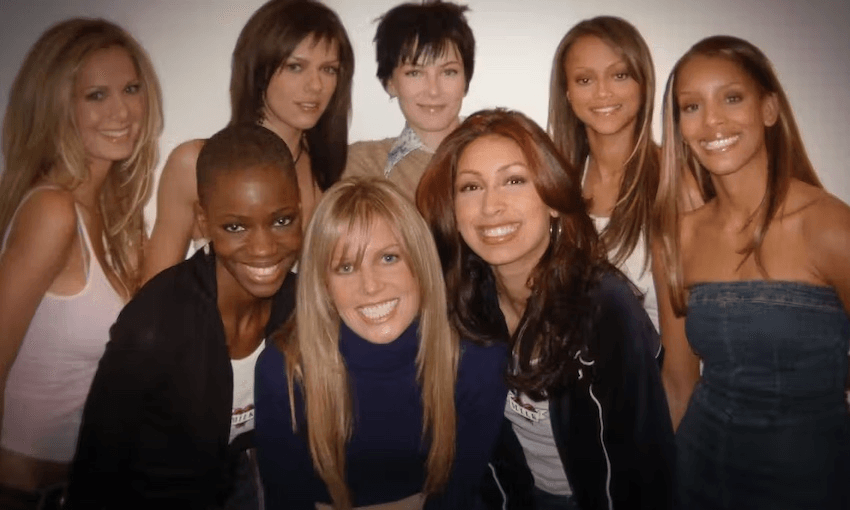The second big-budget local drama of the year debuted last night. Duncan Greive watches and finds some promise buried under very familiar problems – and one serious lapse of judgement.
When a brand new company was awarded $15m in NZ on Air funding for two brand new shows within a matter of months, it sent shockwaves through the local screen production industry. Established houses like South Pacific Pictures were used to a reliable stream of well-funded local drama rolling through each year – now a pair of their former writers had staged a coup and taken two of the biggest drama budgets of 2014 and 2015 with them.
From all angles I heard furious mutterings about their ability to deliver. The idea that you could build something from scratch and execute this stuff irked people no end. When shooting started it got worse: a senior staffer on one production took me out for a beer and told me that the show was shambolic, that nothing was as it should be.
Yet when Filthy Rich, the first and most ambitious of the two productions came out, it looked fine. Whatever goes on backstage only matters if it affects the product. And yes, the product was appalling. But it wasn’t because of how it was made – it was because of the comically wooden writing and clichéd storylines. Not because of the production.
The good news is that Dirty Laundry is better. More naturalistic, with an infinitely more plausible plot and a thread involving child custody which was unexpectedly raw – though not always intentionally so.
For some unaccountable reason these shows always seem to start with the death of a dude, leaving a matriarch-type figure to hold it down in their absence. The variation here is the near-death of Uncle Trevor, a loveable crime boss (sounds familiar too) during his arrest, flowing into the arrest of Donna Rafferty, his suburban book-keeper and money launderer.
The top of the episode is corny in the way that New Zealand shows always seem to be on opening, trying to cram too much in, out of a desperation to keep the audience from running away early. Here’s what happens in the opening ten minutes or so: two arrests, two engagements, two heart attacks, and most shockingly of all, two young people buying an Auckland home.
The latter is actually the most gratuitously weird part – they get a lovely brick and tile house for $690,000 which is basically science fiction at this point, and has been for years.
When we return to Earth, we’re dealing with the aftermath of the arrest of the family matriarch Donna (played with a stoic subtlety by Jennifer Ward-Lealand) on money laundering charges. It’s a shattering event for the Rafferty family, who already dealt with the loss of their father some years before. The whole season is set up from here – a tension between the individual and collective, moral and legal codes and picking between two bad choices.
It’s the subplot which is most vital, even though it gets off to a deeply problematic start. Brother Matt, played with a scattered intensity by Tim Carlsen, heads over to his ex-partner’s house unexpectedly to drop off his son (who cross-dresses, a cool element rightly never explained). On arrival, the kid says “there’s a man hurting mummy”. The pair emerge, post-root, and Matt attacks the new partner.
He and the kid’s mother are separated, and this amounts to the kind of controlling domestic assault which has a profound and appalling impact on women and their children all over the country. Yet here it’s played for laughs – this comical guy, having a wrestle with ‘Dan the meat man’ – ‘she used to be vegan!’ he says later – and he crashes into the meat man’s car on his way to fleeing the scene.
It’s a bleak normalising of domestic violence, in which Matt is presented as wronged party – or at the very least a highly sympathetic figure. Contrast that with the Housewives response to off-the-cuff racism and ask yourself which production dealt with a social issue better.
As terrible as that scene is though, it leads to moments of real power, played very straight: Matt furious in a café, the pair trying to bribe the kid with treats after school. It’s the kind of tense custody situation which tens of thousands of New Zealanders play out every day, and is only rarely glimpsed on screen. It’s just a shame they botched the opening in such a lame and damaging way.
The show’s other problems are so familiar as to barely need recounting, mainly connected to dated dialogue. “It’s great for my cred”; “Take the rap for him”; “reefer madness”; “We’re munted” – that faded facsimile of self-consciously New Zealand slang of which co-showrunner Gavin Strawhan is excessively fond. It sits dead in the actors’ mouths, and undermines the otherwise fine work done by the cast, crew and directors.
Which is a shame. Because Dirty Laundry, for all its faults, also indicates we have the technical capacity to create the fresh, vital modern drama which has epitomised the golden age of television. And that brand new production companies can be come together in short order and deliver international standard work. But while the same old writers conjure the same old scenarios, over and over again, we’re going to keep getting these same broken shows. And we, as a nation, deserve better than that.



